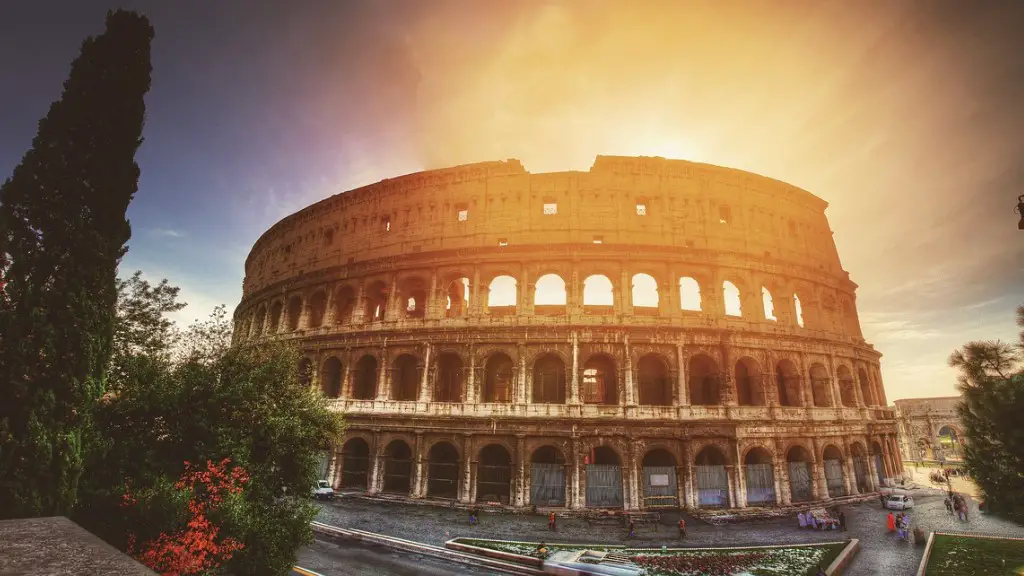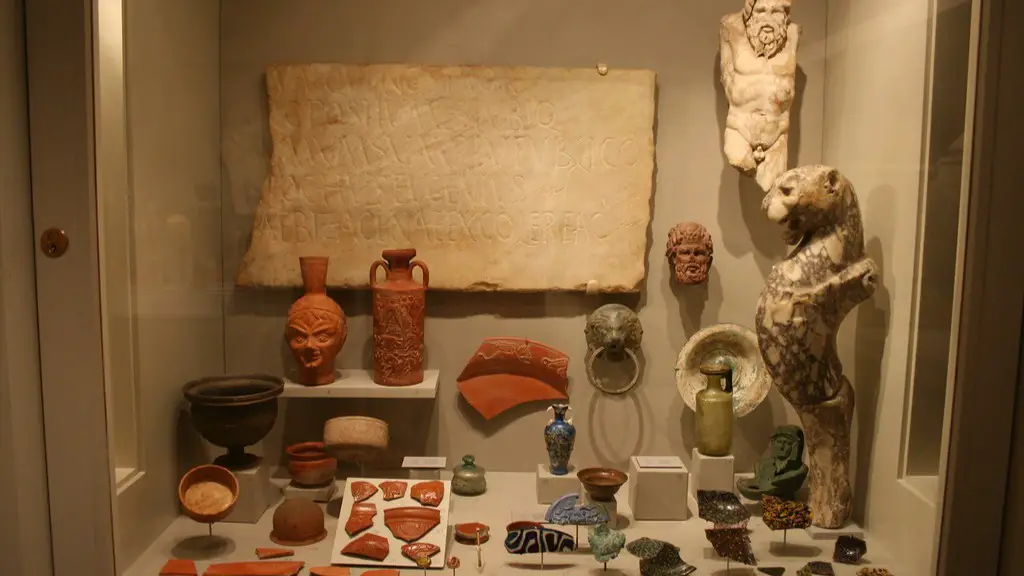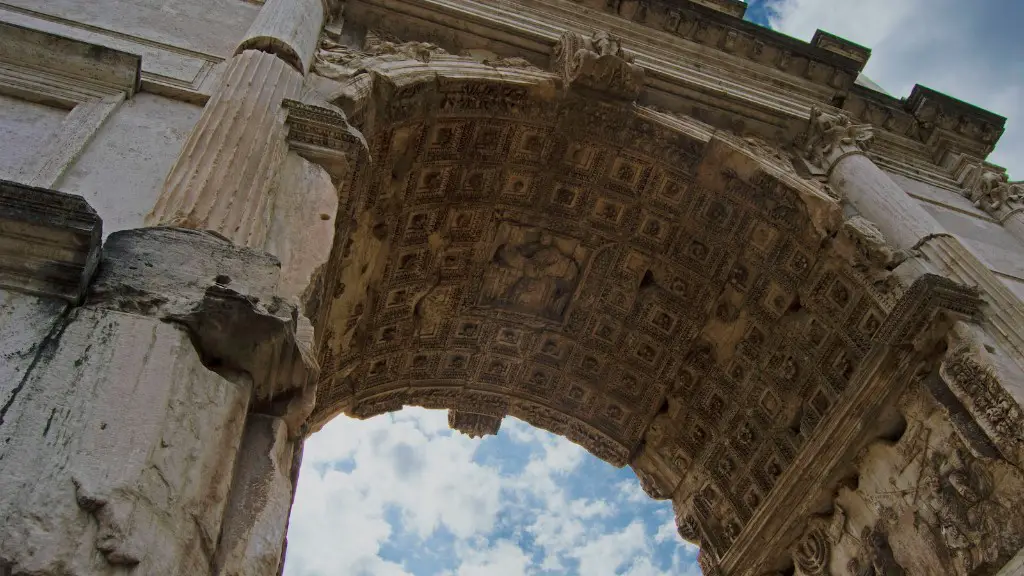In ancient Rome, a person’s civic duty was of utmost importance. From that time until the present day, being a citizen is a matter of great pride. Civic duty has its roots in the Roman Republic, where citizens were responsible for protecting their cities and promoting peace and harmony. The notion of protecting the state and its citizens was a core value of Rome, shaping the republic’s military, legal, and political structures. Roman citizens had certain expectations of citizenship, and they were expected to live up to those duties. This article will explore what those duties were.
In Rome, the citizens had a variety of responsibilities to their country, including paying taxes, defending their cities against invasion, and participating in the voting process. All citizens were liable to serve in the military and were expected to serve in some way when the state required it. Law was also an essential part of life in Rome, with citizens expected to engage in court proceedings and to abide by the laws of the Republic or else face consequences.
Citizens of Rome were also expected to take part in political deliberations and debates. Consul elections, for instance, required the assembly of the people who would then vote for the two consuls that would rule for the year. People were also selected for other important positions such as Praetors and Aediles. The Senate was another large part of the political system, where senators would debate and deliberate over policy decisions. It was also the responsibility of citizens to keep up with the changes in laws and to stay informed about the changes to the Republic.
Furthermore, the people of Rome were expected to cultivate certain habits, such as reading important philosophical and literary works. This was considered to be part of their civic duty, as it was thought that these works would help them to better understand the state of their society and the workings of the Republic.
The notion of civic duty was not only confined to political and legal matters in Rome. Roman citizens also had certain religious obligations that they were required to abide by. The gods and goddesses of Rome were given great importance and were believed to hold sway over the lives of the citizens. They were expected to attend religious festivals and offer sacrifices to show their devotion and respect for the gods.
Citizens of Rome were also responsible for the welfare of their cities and towns, providing aid and care to those who were less fortunate. This meant providing money and food to the needy, helping to build and maintain public buildings and monuments, and giving freely to charity.
In conclusion, it is clear that the civic duties of ancient Rome were varied and diverse. They ranged from religious responsibilities to political participation, from providing for the welfare of citizens to reading important philosophical works, and from military service to court proceedings. The citizens were expected to uphold these duties so that the republic could operate effectively and remain powerful throughout its rule.
Political Participation
The citizens of Rome were expected to take part in the political system and to regularly attend, debate, and vote in assemblies and consul elections. They were required to stay informed and educated about the changes in laws and policies so that they could understand their own role and responsibility in the Republic. Furthermore, people had to be knowledgeable about the Senate, an institution comprising of the elite who had a large influence in the governance of Rome.
Additionally, citizens were tasked with holding important positions such as Praetors and Aediles. This allowed them to further contribute to the political realm. There was also the responsibility of electing two consuls who would rule the state for the year, a matter of great importance. Through political participation, citizens would ensure the prosperity of the Republic and the wellbeing of its citizens.
Military Service
Protecting the Republic was the citizens’ primary responsibility. Therefore, all citizens were liable to serve in the military and defend their country against invasion and attack. In order to do this, citizens were required to have a good understanding of the tactics and strategy of war, as well as knowledge of weapons and armor. Furthermore, citizens had to be familiar with the geology and geography of their region so that they could make effective battle plans. This was a huge responsibility, as it could mean the difference between failure and success in their defense of Rome.
Apart from military service, citizens of Rome had to be willing to accept other assignments from the army. This included taking part in the construction of fortifications and the transport of materials needed in warfare. Engagement in these activities enabled citizens to help defend the Republic, as well as to demonstrate their patriotism and loyalty.
Religious Responsibilities
The gods and goddesses of Rome were integral to its society and culture, and citizens were expected to show their respect. They were required to attend festivals and participate in rituals, as well as to make offerings to their chosen gods in order to seek favor or forgiveness. It was considered a duty to honor these gods and goddesses, and to know their gods and goddesses was to be a part of the fabric of Roman life. Furthermore, knowledge of the gods provided citizens with a sense of identity and communal unity.
Additionally, it was the responsibility of citizens to create and maintain a temple for the gods and goddesses of Rome. This sometimes involved the use of a public building or the construction of a new one that would become a bonding point between the gods and the citizens. This responsibility was important in maintaining the strength of the Republic and its citizens.
Law and Justice
Law and justice were integral aspects of life in Rome, and citizens had the responsibility of abiding by the law or else face the consequences. Furthermore, citizens had to engage in court proceedings and present their own cases, as well as judge others’ cases if requested. Roman leaders also expected citizens to take part in legal deliberations, ensuring that justice was served.
Besides this, citizens of Rome had the responsibility of respecting the decisions of their rulers and of participating in jury duty when requested. This included giving their honest opinion on the cases brought before them, regardless of the outcome. Citizens were also expected to follow the laws of the Republic and to report any wrongdoing to the proper authorities.
Societal Welfare
In addition to their political and religious responsibilities, citizens had a duty to promote the welfare of their cities and towns. This included providing money and food to the needy, as well as helping with the building and upkeep of public establishments. Furthermore, citizens were expected to give generously to charities, churches, and other worthy causes. Through these acts of charity, Rome was able to maintain a sense of unity and solidarity between its citizens.
Furthermore, citizens had the responsibility of upholding the morals and values of the Republic. This was accomplished through various forms of education, such as reading important philosophical works and engaging in meaningful debates. Through these activities, Rome’s citizens would be able to understand and appreciate the workings of their society, as well their roles and rights within it.
Knowledge and Culture
In addition to the political, religious and social responsibilities, citizens of Rome also had the responsibility to educate themselves and cultivate certain habits. This included reading important philosophical works, such as those by Cicero and Virgil, as well as examining other literatures from other cultures. This was important to help citizens understand the workings of their own society, and to appreciate the beauty of literature and other art forms.
Citizens were also expected to participate in debates and other activities that promoted the exchange of ideas, as well as to pass down their knowledge to future generations. Furthermore, Roman citizens had the responsibility of respecting foreign cultures and honoring the deities of other faith systems. By doing so, the citizens of Rome were able to broaden their own understanding and foster a spirit of fellowship and mutual respect within their society.




